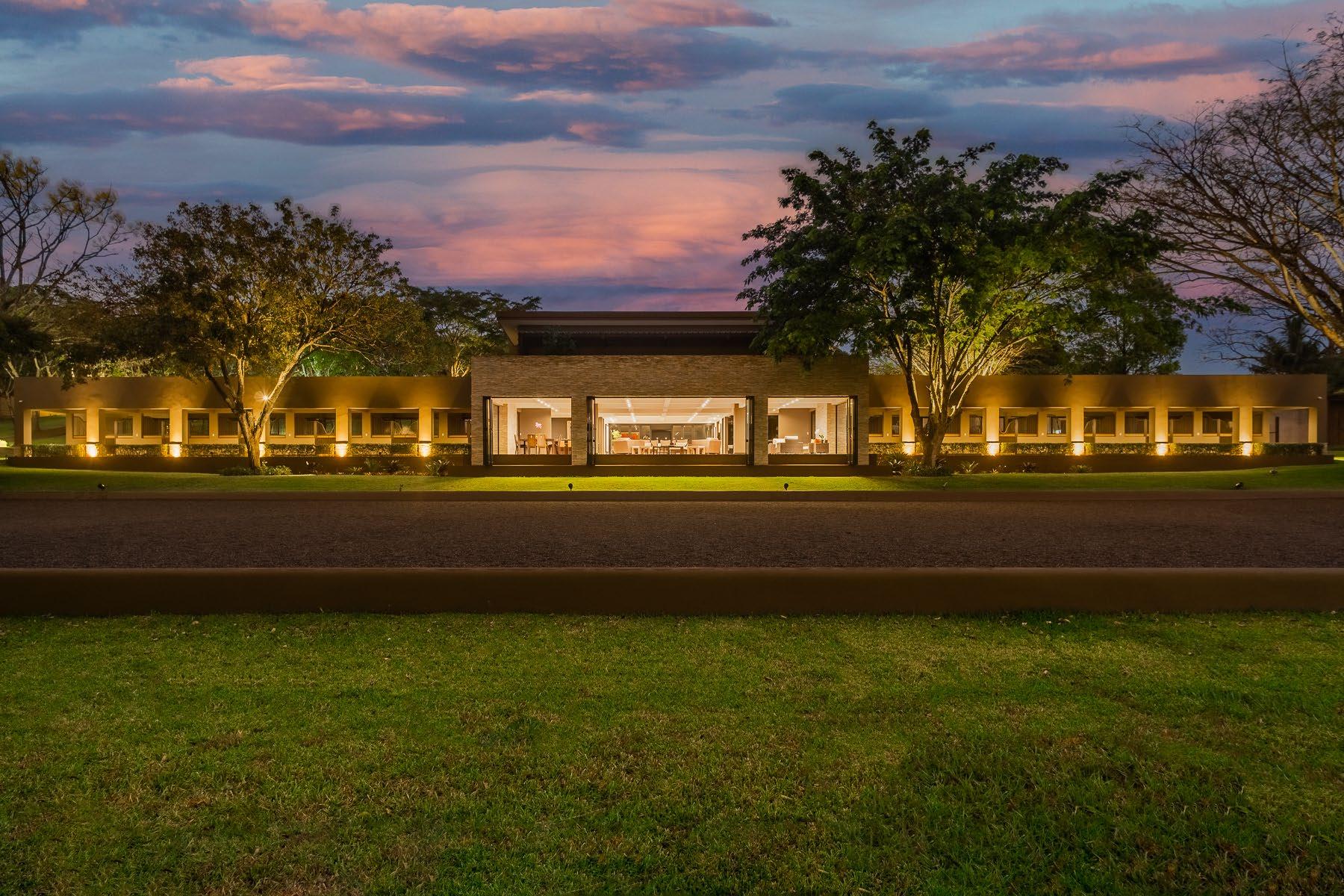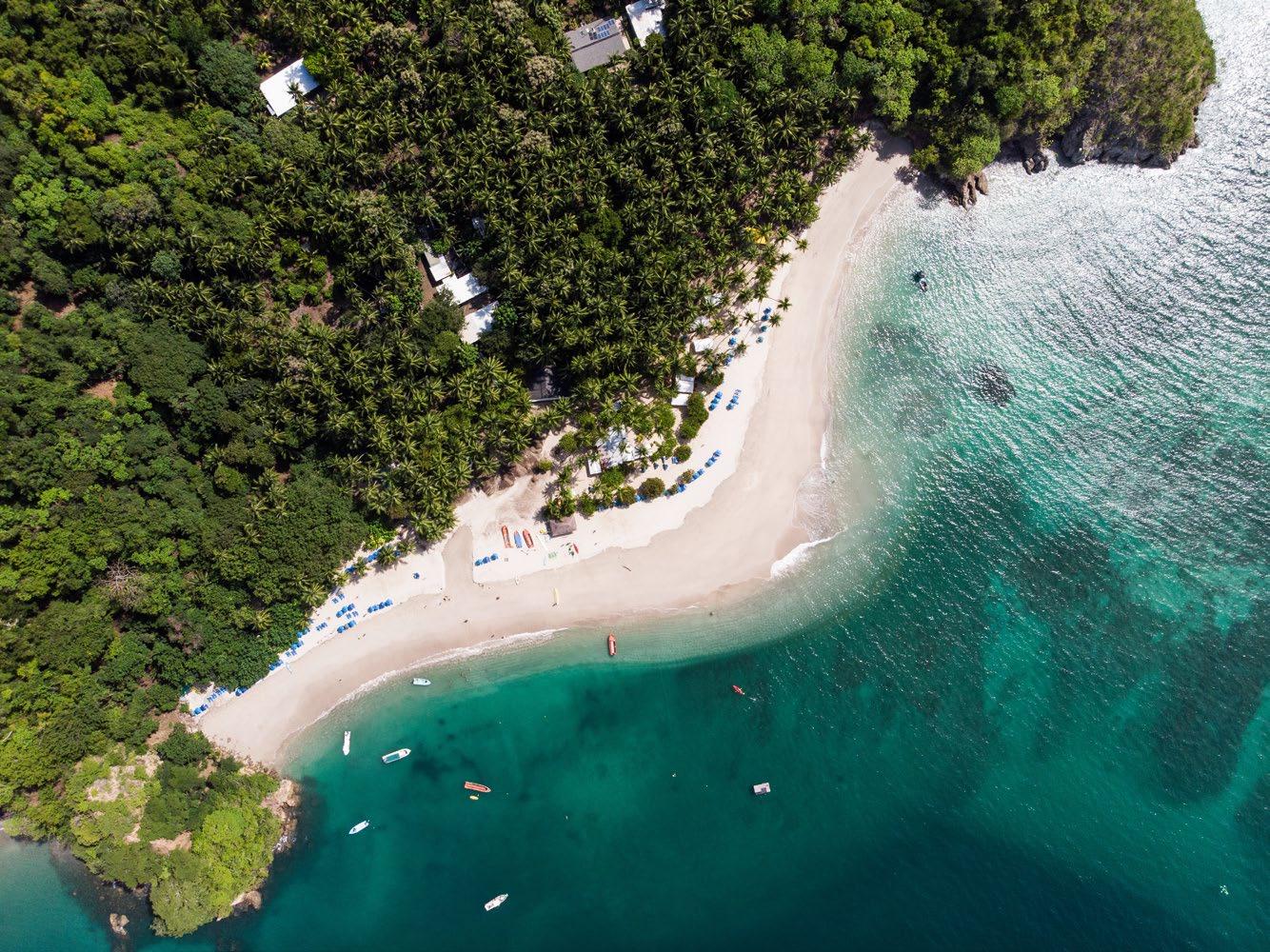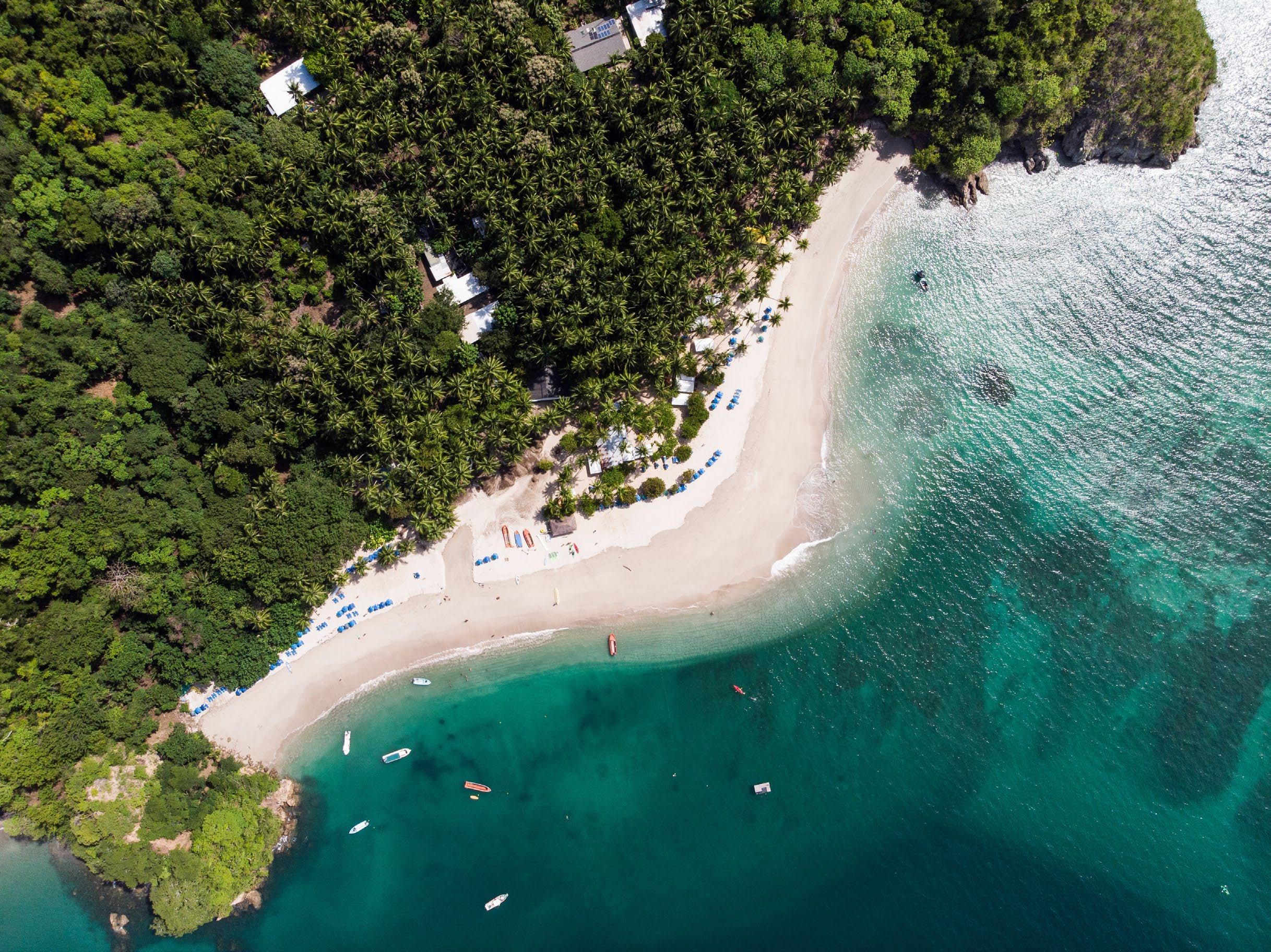

Frequently Asked Questions
HOW TO BUY PROPERTY IN COSTA RICA
EL ENCANTO EQUESTRIAN ESTATE San Rafael, Alajuela
Frequently Asked Questions Purchasing Property in Costa Rica

Can a foreigner buy property in Costa Rica?
Apart from the right to vote, foreigners enjoy exactly the same rights as any Costa Rican citizen, which means that, according to the Political Constitution, anyone can legally buy and own property. Costa Rica's robust real estate market has streamlined the buying process, making it even more attractive to newcomers: citizenship, residency, or even physical presence in the country are not requirements to own a property.
What is the first step to follow to buy a property?
The first steps to purchasing your dream home in Costa Rica are: finding a trusted real estate agent to help you through the entire process, determining the ideal location, finding the home that best suits you and your family's needs, and making an offer. To make an offer, it must be put forward in writing and with the advice of a real estate consultant and a lawyer. For these cases, we recommend using the legal and fiscal services of the firm BDO (https://www.bdo.cr/en-gb/home).
Do I need residency or a visa to buy a home?
You do not need a residency or visa to buy a home. However, a valid passport is required to enter Costa Rica. Depending on your country of origin, entry visas are not required. Some examples are the US, Canada, Australia, and most European countries. Be sure to check with the appropriate consulate to confirm the specific status of your passport requirements. Foreigners can generally stay in the country for up to 90 consecutive days.
Can I obtain Costa Rican residency by purchasing a home?
The Costa Rican government views the acquisition of a property as a foreign investment, which could allow foreigners and their immediate family members to apply for residency, if the applicant makes an investment of more than USD$200,000 in the country. The nature of this investment must be specific to sectors such as tourism, reforestation, active domestic cooperation or commercial and residential properties. However, making an investment does not automatically guarantee approval for residency.
Should I hire a real estate agent??
Given that there are no specific licensing standards for real estate brokers in Costa Rica, essentially any citizen can work in this industry, and because of this, it is vital that foreigners, or anyone buying real estate in the country, do proper research on reputable real estate agencies. This opens the opportunity to hire experts in the area that interests you. A good real estate consultant will help you familiarize yourself with the area, its proximity to restaurants, hospitals, educational centers, and more. Consulting with an agent will guarantee that you find exactly what you are looking for and that the buying and/or selling process is carried out in an appropriate and professional manner.
Is there an MLS in Costa Rica?
The “Multiple Listing Service” does not exist in Costa Rica because real estate is not regulated in the country. Therefore, there is no centralized database with all available properties. It is extremely important to seek advice from a brand like Costa Rica Sotheby's International Realty that provides solidity and confidence during the search process for your next residence.
Frequently Asked Questions Purchasing Property in Costa Rica

About real estate commissions
The Costa Rican market standard is 6% of the sale price. In the country, commissions less than or greater than this 6% are also handled, depending on the product being placed and the area in which it is located. The buyer will not have to pay this commission, since the real estate commission is paid by the seller. In the case of rentals, the commission paid by the property owner is equivalent to one month's rent plus value-added tax.
It’s worth mentioning that the value-added tax (VAT) is charged on both the brokerage commission on rental and sales transactions. In the case of rentals, the monthly invoice that the landlord provides to his tenant includes the additional VAT. This VAT is declared directly to the Ministry of Finance. Additionally, the brokerage company will issue an invoice to the landlord that must also include VAT, since real estate brokerage is a service recorded with 13% tax. In summary, these are two invoices for different services.
Can I request a loan as a foreigner?
Recent changes in Costa Rican law now allow foreigners to apply for loans. Unlike before, when most financial institutions required applicants to be legal residents, the new regulations have simplified the process for foreigners seeking credit. While it’s still important to meet specific requirements and provide necessary documentation, the updated laws make it more feasible for foreigners to secure loans from local banks. If you're considering this option, it’s advisable to consult with financial institutions to understand the current criteria and process.
Do I need a lawyer?
Yes, it is crucial to count on an experienced attorney or notary to walk you through the due diligence, title registration, and corporation formation process. Citizens, residents, and foreigners should always hire a real estate attorney to ensure proper representation. In Costa Rica, only public notaries can carry out transactions to transfer properties and register said transfers before the National Registry. This procedure is carried out through a public deed that is granted in its protocol. BDO lawyers and notaries who have more than 20 years of experience in the Costa Rican market are recommended (https://www.bdo.cr/en-gb/home).
Can I acquire a property through a company or corporation?
Yes, properties in Costa Rica can be acquired in the name of a natural person or in the name of a legal person (company). To correctly execute the diligence, a lawyer will carry out the necessary procedures to validate the existence of the company, that it is up to date with its obligations, and will verify that the representative has the necessary capacity and powers under Costa Rican legislation. Acquiring a house in Costa Rica through a partnership (company/corporation) is quite common; most of the time it is done through a Limited Liability Company – which is similar to an “LLC” – or a Public Limited Company.
During this process, the need for a reliable notary and law firm becomes paramount. In the case of creating a new company, the notary will establish the company. The costs of creating a new entity in Costa Rica range from approximately USD $800 to USD$1,200.
Frequently Asked Questions Purchasing Property in Costa Rica

Can the property title be transferred? How? What are the closing costs?
Yes, the property title can be transferred. The cost of transferring a title is around 3.5% of the total purchase price of the property. This fee is commonly assumed by the buyer, who shall assume the costs, expenses, and related fees to the execution of the property purchase documents (transfer taxes, stamps, registration fees, attorneys’ fees, and public notary’s fees, etc.), which are quoted based on the total price of the asset to be acquired or the fiscal value, whichever is higher.
On the closing date, the seller and buyer shall execute a transfer deed, assuring ownership of property to the buyer.
Additionally, it is important to consider that, if the buyer is not in Costa Rica by the closing date, it is recommended that a special power be granted to your lawyer, real estate advisor, or any other trusted person, whom you allow to buy the property in your name.
What is the difference between a titled property and a concession?
A titled property belongs to whoever made the purchase and registered it in the National Registry under their name. A concession is a property that, because it is of public interest, belongs to the State, and the State has the power to grant authorization for enjoyment for a determined period by signing a concession contract. In this case, the beneficiary pays a fee.
In addition, when a property in Costa Rica is not titled and is located within the Restricted Zone of the Maritime Terrestrial Zone, it is subject to a concession. The MTZ constitutes part of the national patrimony, belongs to the State, and is inalienable and imprescriptible. The MTZ consists of a 200-meter-wide strip along the entire length of the Atlantic and Pacific coasts, which is made up of 2 sections: the public zone, which is a 50-meter-wide strip from ordinary high tide, and the areas that are exposed at low tide; and the restricted zone, constituted by the strip of the remaining 150 meters, or by the other lands in the case of islands. Regarding this, it is important to consider that municipalities may only grant concessions in the restricted areas corresponding to the maritime-land area of their respective jurisdiction. In addition, to obtain a concession, many requirements must be met before the corresponding municipality and, in some cases, before other government institutions depending on what is planned to be developed, including the Costa Rican Tourism Institute, so it is recommended that all the concession process be carried out by expert lawyers in the field.
Which documents are required for due diligence?
During the due diligence process, it is also important to have additional legal advice. The necessary documents from the sellers are usually: literal certification of the property, cadastral plan of the property, land use, proof of municipal taxes up to date, declaration of real estate before the Municipality, solidarity tax up to date (commercially known as “luxury home tax”), and proof of being up to date with public services payments. If the property is in a condominium, the condominium regulations, internal regulations, including construction and gardening (in lots or land), and proof of payment of the last condominium fee to the ownership transfer date. If the property is acquired in the name of a legal person, the Certification of Legal Entity, confirmation of the declaration of the Registry of Final Beneficiaries, and up-to-date natural person taxes are also required.
Frequently Asked Questions Purchasing Property in Costa Rica

Real Estate Taxes?
The first tax payment made after buying a property in Costa Rica is the transfer tax, which is equal to 1.5% of the price of the property. In addition to that, you must pay the annual tax of 0.25% on the registered value at your local municipality. Homeowners in the country are required to update the value of their property every five years; if they do not, the municipality will do it for them.
In addition to transfer taxes and annual property taxes, Costa Rica has introduced a luxury home tax on properties valued at over US$250,000. This is a solidarity tax whose funds will be used to subsidize social housing in Costa Rica, and it is calculated on a sliding scale from 0.25% to 0.55%.
Lastly, foreigners who purchase property in Costa Rica through a new or existing corporation are subject to corporate tax. Through this, we emphasize the importance of hiring a specialized notary or tax advisor to provide proper guidance in this process.
What is the safest way to transfer funds?
The best way to guarantee a safe and effective fund transfer during the purchase of a property is through an escrow agent, also known as fund custody services. In the case of a foreigner buying a property in Costa Rica, these services become even more attractive due to the benefits and security they provide. This is because the buyer or seller may not be familiar with transferring funds to a jurisdiction and market about which they have little information. This service ensures security in handling funds for all parties involved, facilitates the transaction, and most importantly, nationalizes and completes the due diligence process for funds coming from abroad.
What are the closing costs for escrow services?
Since the purpose of escrow services is to protect the interests of both parties, the costs are generally divided between the buyer and the seller. The process is carried out by the Escrow Agent who, once the account is opened, transfers the price to be paid for the property plus the expenses and amounts necessary to cover the transaction, including the fees of the advisors involved. Usually, the fee for the service offered by the Escrow Agent is estimated to be between USD$1,000 and USD$2,000 (depending on the value of the property).

